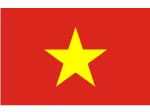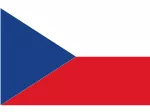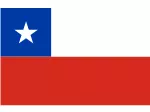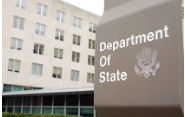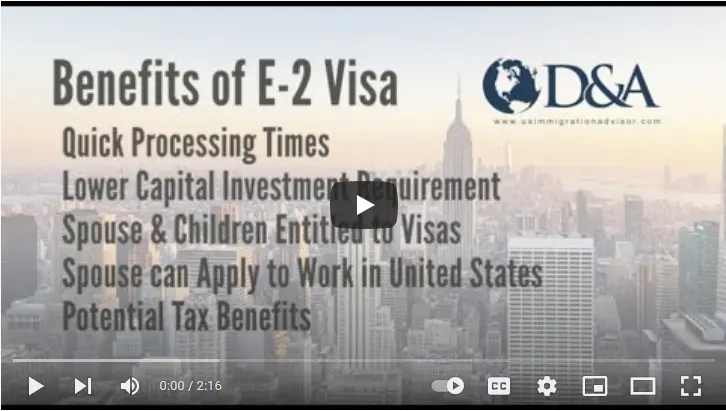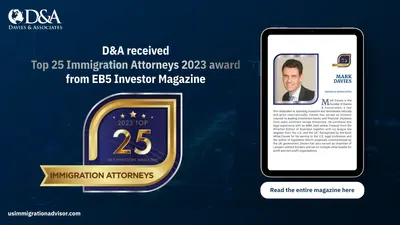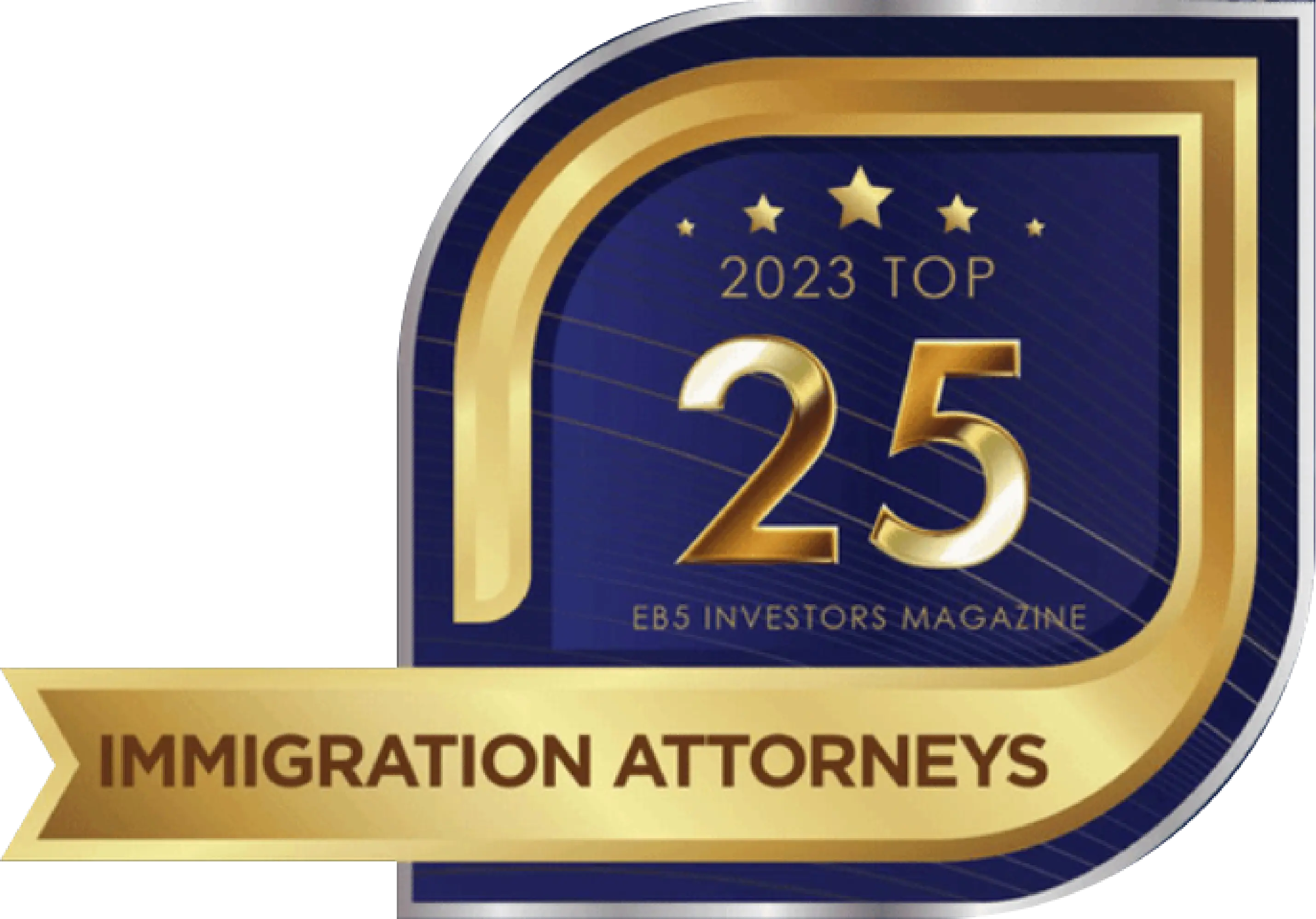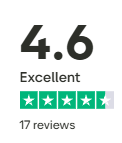Why Every E-Visa Applicant Needs to Read FAM
E-visa applications are decided by U.S. embassies or consulates abroad.
The Foreign Affairs Manual (“FAM”) instructs consular officers during the adjudication or decision of E-visa applications. While the required supporting documents may vary depending on the consulate, the FAM applies to all. It is therefore worthwhile to know that the provisions of FAM.
Qualifying for an E-2 Treaty Investor Visa
An E2 visa applicant needs to show and prove that they meet all the qualifications and requirements to be able to obtain an E2 Visa.
If you're planning to apply, we have included the FAM citation for each E2 Visa qualification or requirement below to help you:
-
You Must “Direct and Control” the Business
9 FAM 402.9-6(F)
The easiest way to prove that you direct, develop, and control the business is through the ownership of 50% of the E2 business.
However, take note that alternatives are also available. You may own less than 50% of the business provided that it's owned by a majority of persons who have the same E2-qualifying citizenship as yours. It is deemed that public companies have the nationality of the stock market where they are traded.
It's important to also note that the applicants for an E2 Treaty Employee specialist worker visa need to have the same nationality as the E2 treaty investor, but they are not required to make any investment to qualify for the visa.
-
National of an E2 Treaty Country
9 FAM 402.9-4(B)
The most important requirement when applying for an E2 Visa is that you must be a citizen or national of a qualified E2 treaty country. The US Department of State maintains a list of qualifying countries which you can use to check if your country is included.
Since US treaties vary by nation, there are different E2 visa requirements for some countries.
E-2 visa applicants who obtained citizenship by making a financial investment in a qualified E-2 country need to be “domiciled” for three years before becoming eligible for an E2 Visa. This requirement, however, is subject to exceptions and “workarounds”
-
Invested or In The Process of Investing a Substantial Amount of Capital in a Qualifying Business
9 FAM 402.9-6(B)
9 FAM 402.9-6(D)
The E2 treaty investor needs to make a substantial investment in a U.S. business. There's no set minimum amount to be considered substantial, but the adjudicator may calculate the substantiality depending on the proportion between your invested funds to the total value of the business.
The capital must be sufficient enough for the operational success of the enterprise. For example, an investment of USD 60,000 that is substantial for a small food business may not be substantial enough for a large business.
The consular officers, however, usually expect for are directed to look for USD 100,000 investment though there is no minimum investment required.
Investments don't have to be in the form of cash. Moving inventory to the U.S. business or using intellectual property also counts as an investment.
-
Invest in an Irrevocably Committed Investment the Funds
An E2 qualifying investment must be irrevocably committed to the E2 business. Investments that are speculative or passive don't qualify.
There are immigration lawyers who took this to mean that the investment must already be spent on business activities at the time of the application. However, it is clear that such is not true. If the funds are placed in an escrow account, this doesn't need to be spent at the time of the E2 visa application, however, the treaty investor applicant still needs to show considerable business expenses made to get the company at least imminently operational at the time of the filing of the application.
When you place funds in an escrow account, this irrevocably commits the funds to the business and thus meets the requirement. If the funds are in a business bank account, however, they don't count for the visa application. Take note that the funds committed to an escrow must be sufficient to fund the expenses in the business plan.
The good thing about an escrow account is that you will be able to get your investment back if your application doesn't get approved. Escrow accounts are usually held by major financial institutions.
-
No Marginal Investments
9 FAM 402.9-6(E)
It is required that the investment must not be considered a "marginal
investment". This means that it must generate income beyond to provide a
living for the investor and their family. If the E2 investment has the
capacity to make a significant contribution to the U.S. economy within 5
years, then the investment is not considered marginal.
An easy way to demonstrate that a business is not “marginal” is by employing
workers. An application that involves only future jobs may be questioned by
the consular officer or the USCIS.
-
The E2 Business must be “For Profit”
9 FAM 402.9-6(C)
Charities and entities under 501(c)(3) don't qualify as E2 businesses. It is
required that the E2 business is an "active for-profit" business. "Active"
means that the business allows commercial activity, while "for-profit" means
that it must produce goods or offer services. If the investment is passive or
is a non-profit business, then it will not qualify for the visa.
-
Lawful Source of Funds
You must be able to prove that you obtained your E2 investment through lawful
means or sources. In practicality, fewer questions are asked about the source
of an E2 applicant’s funds than in an EB-5 visa application.
-
Intention to Depart
9 FAM 402.9-4(C)
Once you have filed your visa application, you will need to file a statement
that you intend to leave the U.S. once your E2 status ends.
The Foreign Affairs Manual (“FAM”) guides consulates when adjudicating or
reviewing E-visa applications.
9 FAM 402.9-4(C) states that an E2 applicant does not have to maintain ties with their
home country to prove their intent to depart. They may even sell their
residence and move their household to the U.S. The applicant's mere statement
of unequivocal intention to depart the U.S. upon termination of their E-2
status is sufficient for the issuance of an E visa. However, in practice,
consular officers may occasionally question this.
What documentation do you need for an E-2 Visa?
U.S. immigration laws do not mandate a lot of required documentation in E-2 visa cases. If you have an immigration lawyer, they can give you a list of the required relevant documents you would need for your application. This would likely include the following:
- Form DS-160 Confirmation Page
- A copy of your valid password that is valid 6 months beyond your intended period of stay in the U.S.
- Passport-size photograph
- Evidence of treaty country citizenship
- A detailed and comprehensive business plan
- Evidence of investment funds
- Evidence of bona fide enterprise
- Articles of Incorporation or Registration
- Lease agreements or property ownership, if you have secured a space for your business
- Financial statements and corporate documents
- Market research
- Payment receipt; and
- Any other supporting documents that can help with your case.
Knowing the documentation expected by different officers in different U.S.
Embassy or Consulate is crucial as well when filing E-2 visas in a specific
consulate.
What Every E-2 Visa Applicant Needs to Know
In general, E-2 visa applications are examined and processed by U.S.
embassies or consulates abroad, however, if you are already in the U.S.
on a valid nonimmigrant status, you may be eligible to apply to change of
status with the United States Citizenship and Immigration Services (USCIS).
The Foreign Affairs Manual (“FAM”) instructs consular officers during the
processing and adjudicating of E-visa applications. Although supporting
documentation requirements do vary by consulate, the FAM applies to all
consulates. Visit our
E2 visa process article for more.
It is therefore worthwhile knowing the provisions of FAM as this is a “rule
book” by which a consular officer will assess your application.
You can also check our guide on
E2 visa cost today.
E2 Visa Application Procedure and Processing Times
Step1 - COS or Consular Processing
You must first determine whether you will file for a Change of Status ("COS") to an E2 status within the U.S. or through a U.S. consulate abroad. You can
follow this link for more information.
- An E2 status is different from an E2 visa. E2 visas can only be obtained
from a US consulate outside the United States. An experienced
E2 visa lawyer
can help you understand the important steps to take during your application to the consulate.
- The application for E-visas don't involve the filing of an application or petition with the DHS or USCIS.
- The DHS and USCIS only rule on E2 visa Change of Status cases and extension of E2 status cases filed in the U.S.
- The DHS and USCIS are not involved in the initial adjudication of an E visa. This gives E1 and E2 visas a significant advantage in terms of processing time.
Step 2 - Which Consulate to Use
As consular procedures and processing times vary, the choice of consulate can be critical. Your E-visa lawyer can give you advice on this choice. The consular options include:
- The US consulate where the applicant lawfully resides.
- The consulate in an applicant’s home country.
- Sometimes the consulate serving the area where an applicant is visiting may be willing to adjudicate an application.
What Questions Will I be asked at my E-2 Visa Interview?
The questions to be asked during your interview may differ depending on the consulate you chose and the officer deciding on your application. However, there may be common themes.
The questions will revolve around the determination if you are qualified for an E2 visa, such as the substantiality of your investment capital, the source of your funds, and the amount of money you have invested among others.
Golden Rule for E2 Visa Success
Applications for E-visas don't involve an application to the DHS or USCIS.
However, both offices do adjudicate cases of E2 Visa Change of Status and
cases of extension of an E2 status. Take note that an E2 status is different
from an E2 visa. E2 visas can only be obtained from a US consulate abroad.
Most visa classifications would involve the adjudication or formal decision by
the DHS or USCIS; and the visa processing by the applicable consulate during
the application. However, it is different in with E-visa
applications.
E-visa applications are made directly at the US embassy or consulate. The
USCIS or the DHS are not involved in the initial determination of an E visa,
which gives E-1 and E-2 visa holders a significant advantage in terms of
processing times.
The consulate in the applicant's home country, where the applicant resides, or
where the applicant is visiting may adjudicate the application.
Key Features of the E-2 Visa for Treaty Investors
When compared to other nonimmigrant visa classifications, here are some of the key features of an E2 Visa:
- The treaty investor and their qualified employees can work legally and
strictly in the E2 investment enterprise so long as the investor and their
employee are nationals of the same treaty country;
- The visa validity depends on a reciprocity schedule is
initially (usually 5 years) depending on the investor's country
of origin which can be extended indefinitely.
- The treaty investor can be accompanied by their spouse and unmarried
children under the age of 21.
- The spouse, not the children, may be employed in the U.S. without a need
for an Employment Authorization Document (EAD).
Limitations of an E2 Visa
Like other classifications, there are limitations visa applicants may experience under an E2 Visa:
- It's a non-immigrant visa, which means that it doesn't directly lead to a lawful permanent residence or a green card.
- To maintain the treaty investor status, you must maintain a substantial investment in an active business and be involved in its management and control.
- It's only available to nationals of treaty countries, which are countries
that have a treaty of commerce and navigation or a qualifying bilateral
agreement with the U.S., or those which has been deemed qualified by law.
- The visa doesn't offer a direct road to U.S. citizenship.
Business and Investment in E2 Visa
To gain E-2 status, the business should produce goods and offer services.
Moreover, it is required that the treaty investor must develop and direct the
enterprise, which means their daily presence is necessary for a successful
operation.
The business must also be not a marginal enterprise, which means it must add
value to the U.S. economy. Treaty investors can show how this condition can be
fulfilled through their business plan as part of their application.
As for the investment, it is generally required that it must be made before
obtaining the visa. The E-2 Visa is granted to investors not to make
investments but to allow them to expand or manage their investment enterprise.
There's no precise legal requirements regarding the amount of investment. What
is required is that the investment must be substantial enough to ensure the
success of its operations.
About the Authors
Mark I Davies, Esq.
Chairman of Davies & Associates; focused on E visa strategy and complex consular filings.
Mark I Davies, Esq. JD, University of Pennsylvania Law School, Licensed with the SRA (SRA ID: 384468) in the UK, Member Law Society of England & Wales, MBA, Wharton School of Business. Top 10 Investment Visa Lawyer, Licensed (USA), Georgia State Bar. AILA Member.
| Area |
Details |
| Education |
JD, University of Pennsylvania Carey Law School | MBA (Finance), The Wharton School, University of Pennsylvania | Chartered Accountant (ICAEW) |
| Financial Training |
Completed Analyst Training Program at a major international bank | Chartered Accountant background with professional training in financial analysis and reporting |
| Legal Practice |
Admitted to practice in Georgia (USA) | Registered Solicitor with the Law Society of England & Wales | Former CMBS lawyer at one of the world's largest international law firms |
| Immigration Track Record |
15+ years advising HNW investors | Zero denials for clients advised on source-of-funds compliance in EB-5 | Hundreds of successful EB-5 cases globally |
| Recognition |
Named a Top 25 EB-5 Immigration Attorney by EB5 Investors Magazine (2018–2023) |
| Professional Engagements |
Lecturer/trainer for other lawyers at AILA, ACA, University of Pennsylvania Law School | Frequent speaker at global investment immigration conferences |






